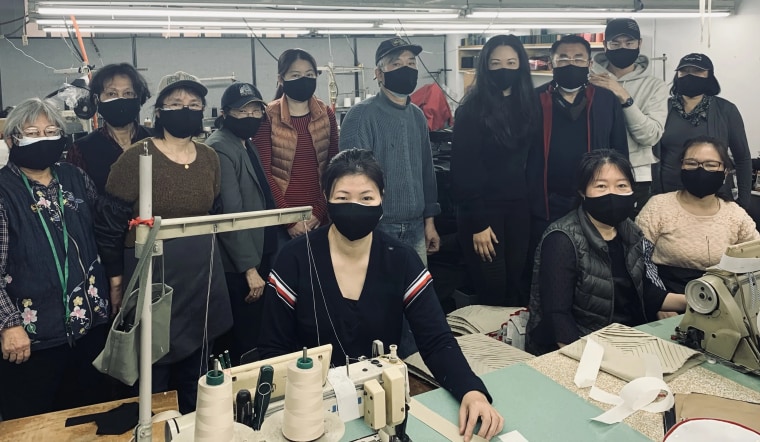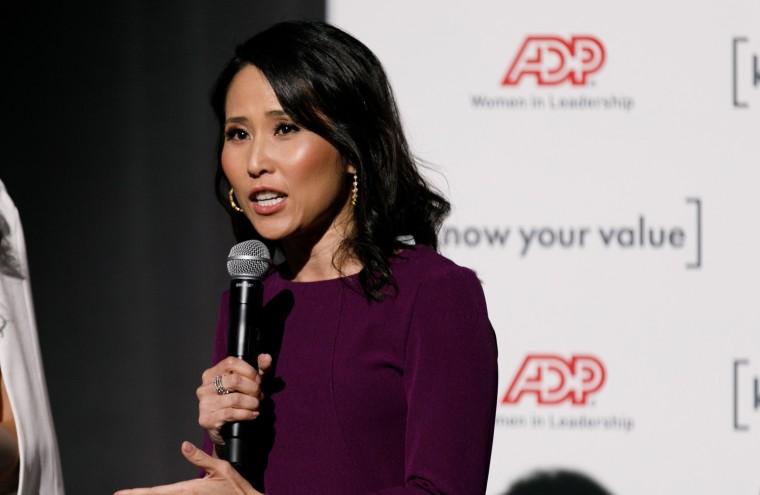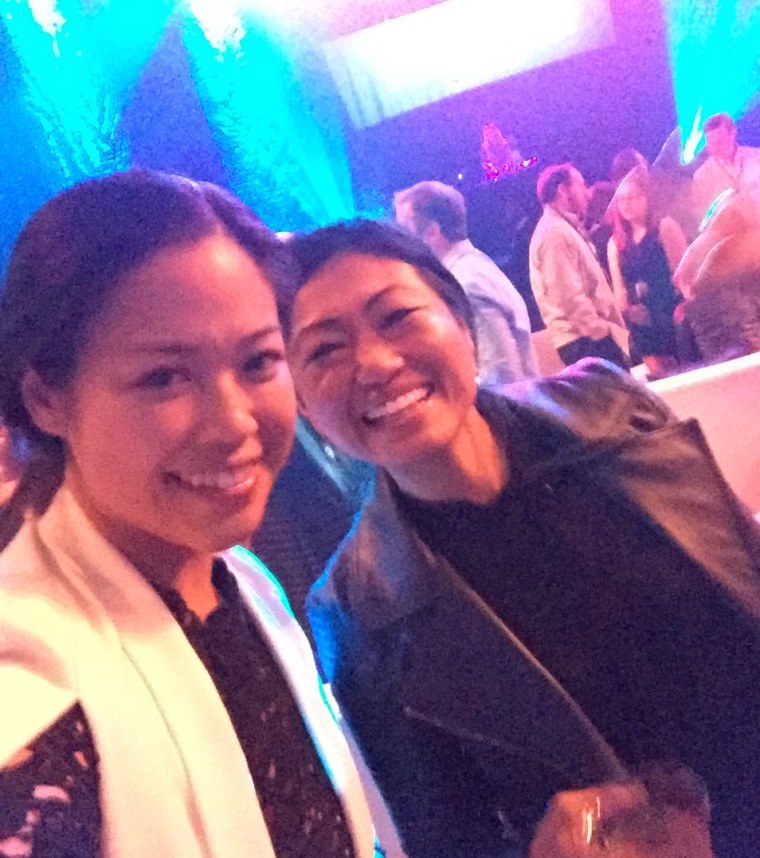Before March 15, fashion CEO and Know Your Value contributor Lisa Sun didn’t consider herself particularly vulnerable to violent, racist attacks.
Sun, who is Taiwanese, was born and raised in Southern California. With racist attacks against Asians on the rise across the country, she found herself more worried about her employees, who are largely immigrants.
“One of my seamstresses said that people were moving away from her on the subway. My head designer said that someone screamed at him and blamed him for the ‘China virus,’” said Sun, who founded the New York-based company Gravitas. “You don’t understand it. And then, it happens to you.”

In the early evening on March 15 (one day before the Atlanta spa shootings), Sun was pulling a hand truck of boxes to a post office in Midtown Manhattan, like she had done hundreds of times before. A few of the boxes fell to the sidewalk, so Sun bent over to pick them up.
What happened next was fuzzy to Sun, but video footage police later showed her revealed that a man aggressively poured his beer on her while she picked up her boxes. Her coat and neck were dripping wet. A second man walked behind her and, according to Sun, said “go back to China.” Then, both men fled.
A few bystanders saw the incident and did not intervene, she said.
Shocked, Sun called a friend first.
A rising problem.
Violence against Asian-Americans, particularly women, has been intensifying since the onset of the Covid-19 in March 2020. Eighty-one percent of Asian-Americans believe that violence against them is escalating, according to a Pew Research study. Those surveyed believe they are being targeted over the false suggestion that they are responsible for the pandemic.
“As a community, we have sought protection and survived by getting a good education, by being successful, and by having proximity to whiteness—we thought we would stop being seen as the ‘other,’” said Joo Han, deputy director of the Asian American Federation. “But, this Covid-19 moment has ripped that shroud of that illusion away.”
Indeed, when Seattle entrepreneur Jane Park received a desperate call from her friend Lisa saying she was attacked, Park was surprised.
“[Lisa] is a Yale-educated CEO, and we had just been talking about how the seamstresses she works with who are sort of older and not fluent English speakers—how they had been targeted walking to work,” Park said. “I don’t think we really imagined this kind of thing would happen to us, because we're fluent in English, we grew up here. Of course, that doesn’t protect you, but still, it was a shock.”
Underreporting is rampant.
At Park’s insistence, Sun reported the crime to Stop AAPI Hate, a nonprofit group that gathers information about attacks on Asians.
“The act of Jane opening up her laptop is allyship. She’s the one who said ‘you have to report this,’” said Sun.
Shortly after, Sun also called her friend Vicky Nguyen, an investigative and consumer correspondent for NBC News. Nguyen instructed Sun to report the incident to the local police precinct. She then put Sun in contact with New York’s Asian Hate Crimes Task Force, where Sun eventually spoke directly to the force’s commanding officer Stewart Loo. Sun said Loo was caring and thorough.

“What would I have done if I didn’t have a reporter friend who had all the right contacts?” Sun said. “My friends took control of the situation in the moment. That gave me some power in a moment when I was feeling very powerless. I don’t know how other victims can do this. A lot of them don’t speak English.”
Generally, attacks on Asians are underreported. In an AAPI survey, just 30 percent of Asian-American respondents said they felt “very comfortable” reporting incidents to the police. In comparison, 45 percent of Black and 42 percent of Latino respondents felt the same way.
Han said that Asians are deterred from reporting hate crimes for reasons ranging from cultural norms to mistrust.
“There is a sense in this community that we need to survive and move forward,” Han said. “And until we have access to services in certain Asian languages, the quality of help is not going to be great all the time. Many don’t trust law enforcement because they haven’t had the best experiences with them. They don’t think they’ll be listened to.”
Nguyen argued that many police officers who take the initial reports need more training.
“We need to educate officers who take these reports to make the targets of the attack feel comfortable, safe, and to feel like they did nothing wrong,” said Nguyen.
Help brings hope.
Once she was able to sit down with the Asian Hate Crimes Task Force, Sun was finally able to review all of the evidence of the attack.
CCTV cameras had captured two angles of the incident, including the beer pouring, the second man approaching, and the bystanders who did not offer assistance.
“There I was. It all happened. I wasn’t crazy,” she said.
However, the audio did not clearly capture the second alleged assailant’s utterance: “go back to China.” Therefore, Sun said the crime could not be reported as a hate crime.
It was overall an extremely traumatizing ordeal for Sun. However, she was inspired by her experience with the Asian Hate Crimes Task Force.
“Yes, in the end, Inspector Loo told me that the footage was not clear enough to move the case forward as a hate crime, which is disappointing in terms of seeking justice and making our city safe for Asians,” said Sun. “But it was comforting to meet people who looked like me who wanted to find all the available evidence and try as hard as possible to seek justice and make things better.”
Why allyship is the way forward.
Sun has learned a lot about allyship in this process, and she has an even deeper appreciation for her friends.
“I had this support system, and I didn’t even realize it until after the fact,” she said.

Sun offered advice for friends of Asian-Americans who want to help the community and their Asian friends.
“It’s about sympathy, sharing and supporting. Support Asian businesses and charities. I don’t need you to check on me, but I need you to know that I’m in pain, and you can acknowledge that and say you want to help,” Sun said.
She offered a call to action to the Asian community as well.
“We as a community are not as comfortable being vulnerable or in pain. We think: just work harder and ignore it. Actually, we need to talk about this and not be afraid of it. We have to report it. And, we have to support each other.”
